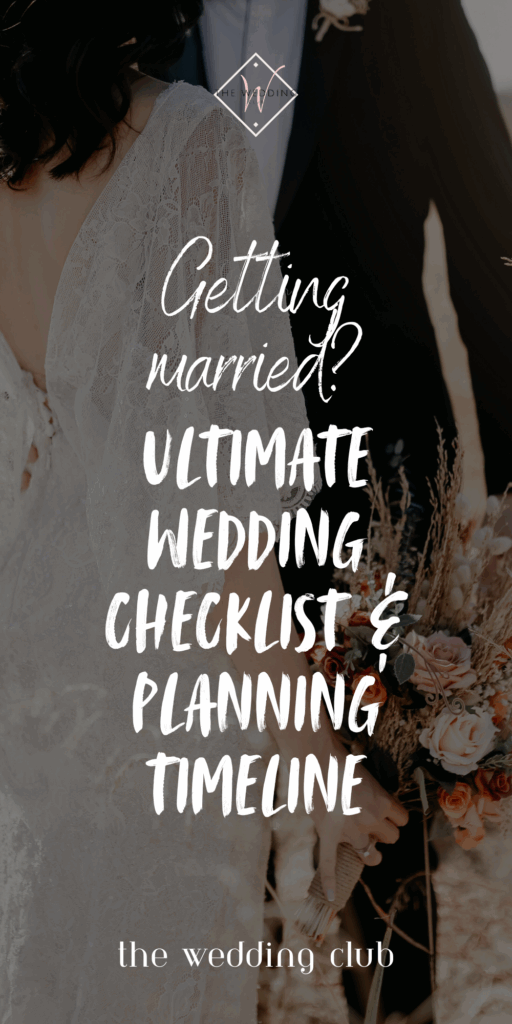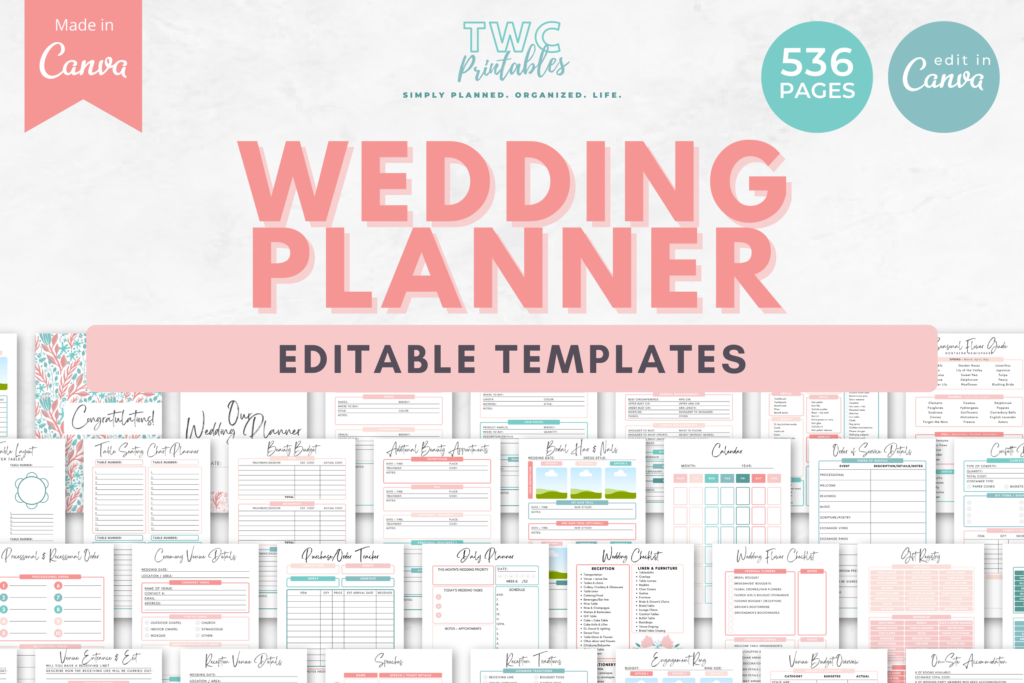Congratulations on your engagement! 💍 This is the beginning of an exciting new chapter, and while planning a wedding can feel overwhelming at first, the right approach makes everything easier.
Whether you’re dreaming of an intimate ceremony, a grand destination celebration, or something in between, this guide walks you through the essential steps to getting married and planning a wedding timeline that actually works.
Here is your Wedding Planning Essentials (Quick Start Checklist):
-
Decide on your budget and priorities
-
Choose a wedding date and venue
-
Draft your guest list
-
Research and book key vendors (photographer, caterer, florist, entertainment)
-
Start your wedding registry or gift list
-
Plan your attire and schedule fittings
-
Send save-the-dates and invitations
-
Organize your ceremony + reception details (theme, décor, music, menu)
-
Confirm legal paperwork and marriage license requirements
-
Prepare for the honeymoon and post-wedding tasks
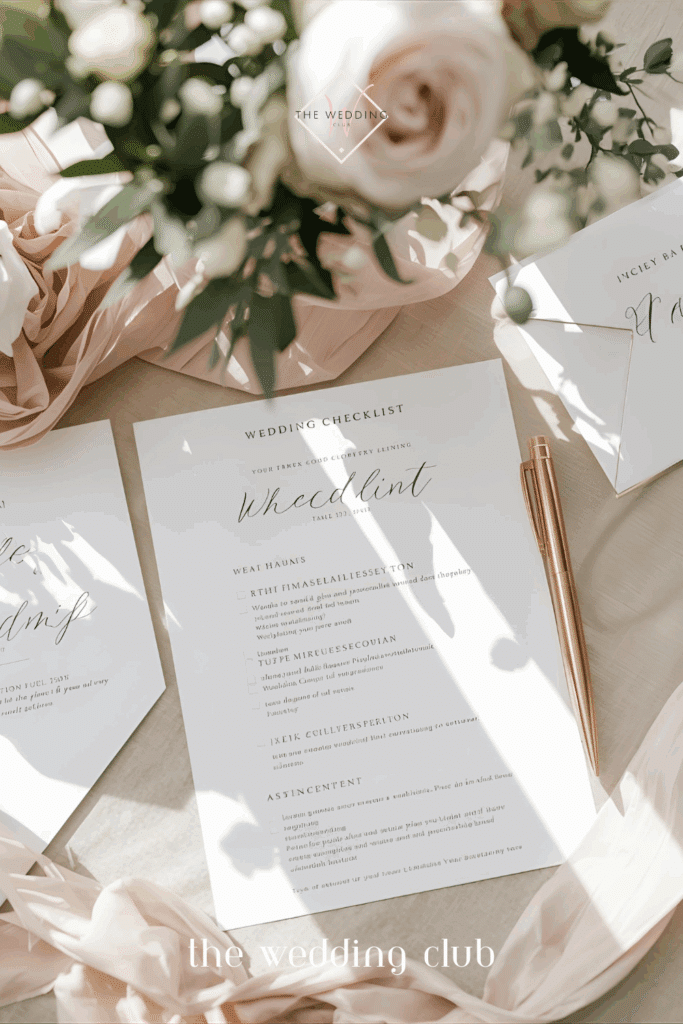
Planning a Wedding?
Save time and effort by grabbing our Wedding Planner Bundle! With over 500+ pages to choose from + edit, we made sure to not leave anything out, giving you peace of mind!
What To Do First When You’re Getting Married
So, you’re officially engaged—what happens next? The first steps you take after saying “yes” will set the tone for the rest of your wedding planning journey. Before diving into colors, themes, or Pinterest boards, focus on these essentials:
1. Talk About Your Wedding Vision
Sit down with your partner and discuss what kind of wedding you both want. Do you imagine a formal ballroom reception, a rustic outdoor gathering, a destination wedding, or a cozy courthouse ceremony? Having a shared vision early on helps guide every decision that follows.
2. Set a Realistic Wedding Budget
Money conversations aren’t glamorous, but they’re necessary. Decide how much you can spend, who’s contributing, and what your priorities are. Some couples splurge on photography while others invest in food or entertainment. Setting a budget first ensures you won’t be blindsided later.
3. Create a Preliminary Guest List
Your guest count will influence nearly every decision—from the size of your venue to your catering costs. Start with a rough draft list of family, close friends, and must-have guests. You can always refine it later.
4. Choose a Date (or a Timeframe)
Popular venues and vendors can book up more than a year in advance. Pick a preferred date—or at least a general season and year—so you can start checking availability. Flexibility often saves money and stress.
5. Research the Legal Requirements
Every country (and sometimes state or region) has its own marriage laws. Typically, you’ll need valid identification, a marriage license or certificate, and possibly witnesses. Research what applies where you plan to marry, and make sure you allow enough time for paperwork.
💡 In short: the very first things to do when you’re getting married are to align on your vision, agree on a budget, draft a guest list, choose a date, and confirm the legal paperwork. These early steps will make the rest of your wedding planning smoother and less stressful.

Wedding Planning Timeline: What to Do and When
One of the biggest questions couples ask after getting engaged is: “How long does it take to plan a wedding?” While every celebration is unique, most couples benefit from following a step-by-step wedding planning timeline. Here’s a global guide to help you stay on track.
12–18 Months Before the Wedding
-
Decide on your budget and financial priorities.
-
Draft your guest list (even if it’s not final).
-
Book your venue early—popular spaces often fill up over a year in advance.
-
Research and reserve key vendors: wedding planner (if using one), photographer, videographer, and caterer.
-
Choose your wedding party and share the news.
-
Start browsing wedding attire styles
💡 Tip: This is also a great time to set up a wedding website or registry.
9–12 Months Before the Wedding
-
Finalize your guest list.
-
Shop for and order your wedding dress, suit, or attire.
-
Hire additional vendors: florist, band/DJ, officiant, baker, and décor rental.
-
Reserve a block of hotel rooms for out-of-town guests.
-
Begin engagement photos if you’d like to use them for save-the-dates.
-
Send save-the-date cards if you’re having a destination or large wedding.
6–9 Months Before the Wedding
-
Arrange transportation for you, your wedding party, and guests (if needed).
-
Order bridesmaids’ dresses and groomsmen’s suits.
-
Plan your honeymoon and book travel.
-
Meet with your caterer for tastings and finalize your menu.
-
Choose and order your wedding cake.
-
Begin planning ceremony details (readings, music, vows).
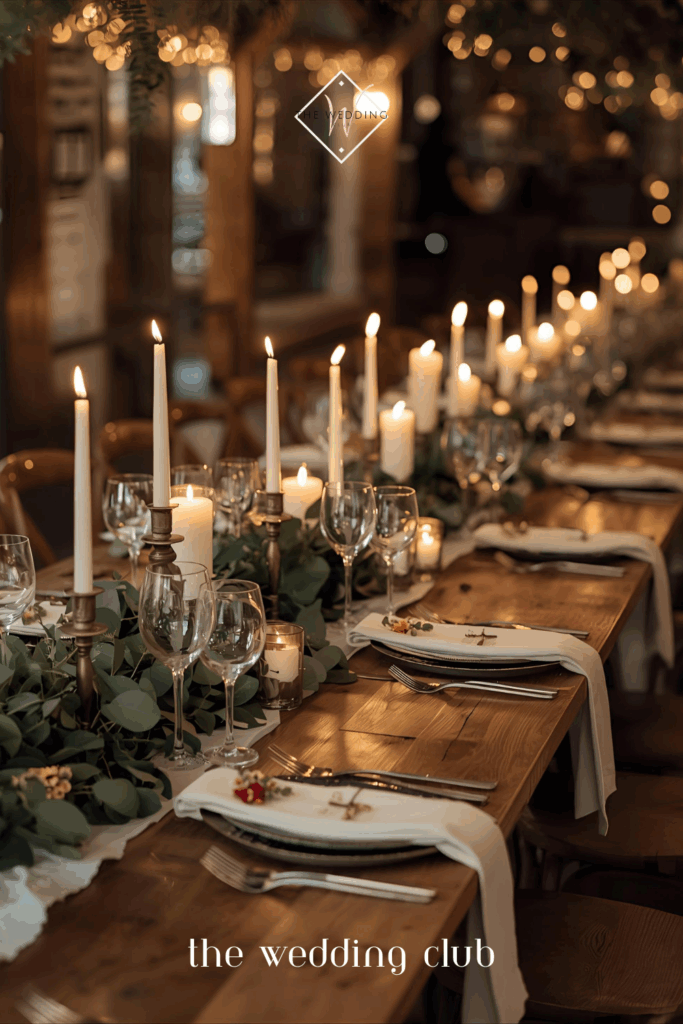
3–6 Months Before the Wedding
-
Send formal invitations (usually 3–4 months ahead).
-
Schedule dress fittings and tailoring appointments.
-
Book your hair and makeup artists, plus do trial runs.
-
Finalize décor, flowers, and rentals.
-
Confirm with entertainment and create playlists or song lists.
-
Shop for wedding bands/rings.
-
Apply for your marriage license (check your local timeline—some are valid for only 30–90 days).
1–3 Months Before the Wedding
-
Create your seating chart and confirm RSVPs.
-
Write your vows (if personal).
-
Confirm final vendor payments and timelines.
-
Purchase wedding party gifts.
-
Plan and attend your bachelorette/bachelor celebrations.
-
Do a final walk-through of your venue with vendors or coordinator.
1–2 Weeks Before the Wedding
-
Pick up attire and do last fittings.
-
Confirm final headcount with your caterer.
-
Put together your wedding day emergency kit.
-
Pack for your honeymoon.
-
Prepare final payments/tips for vendors.
-
Hold your wedding rehearsal and rehearsal dinner.
Wedding Day & Beyond
-
Relax and enjoy the celebration!
-
Assign a trusted friend or coordinator to handle logistics so you can stay stress-free.
-
After the wedding:
-
Send thank-you notes within a few weeks.
-
Change your name on legal documents (if applicable).
-
Leave reviews for vendors and share your photos.
-
💡 Your wedding checklist covers everything from venue and attire to food, music, and legal paperwork. Breaking your planning into these categories ensures you won’t overlook any essentials, no matter how big or small your celebration is.
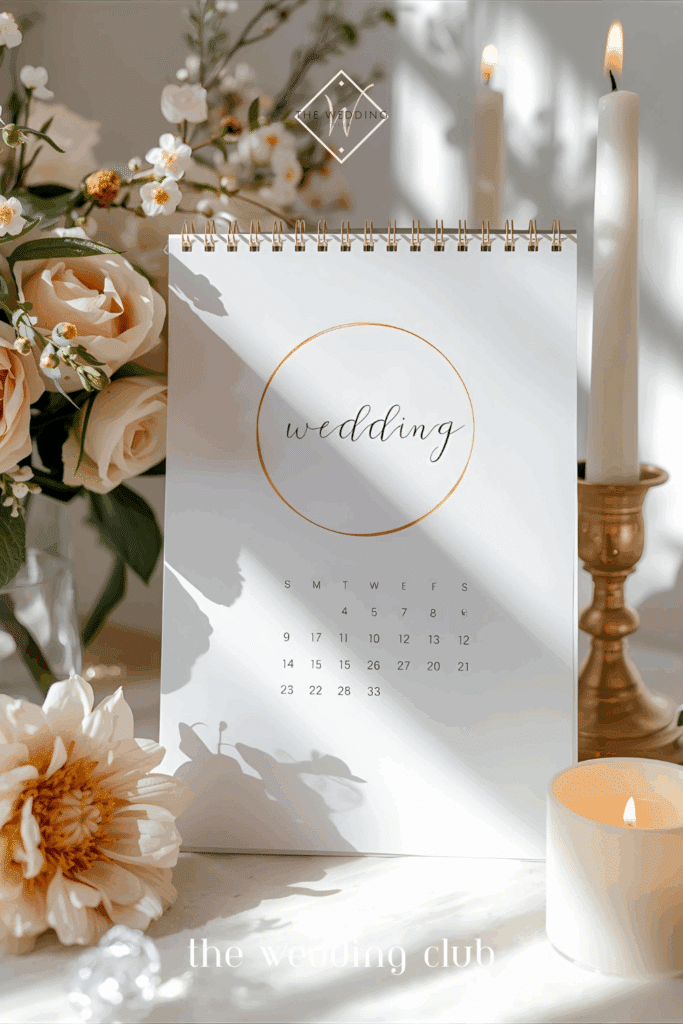
Planning a Wedding?
Save time and effort by grabbing our Wedding Planner Bundle! With over 500+ pages to choose from + edit, we made sure to not leave anything out, giving you peace of mind!
Wedding Planning Timeline: What to Do and When
Every wedding is unique, but most celebrations share the same core elements. Think of this section as your master wedding planning checklist—the categories you’ll need to cover, no matter your style, size, or budget.
Venue
Your venue sets the tone for your entire celebration. Decide early if you want a traditional banquet hall, outdoor garden, beach resort, rustic barn, or city rooftop. Key things to confirm:
-
Capacity for your guest count
-
Indoor/outdoor options
-
Accessibility for guests
-
Packages (catering, décor, rentals included or separate)

Attire
From the wedding dress or suit to bridesmaids’ dresses, groomsmen’s suits, and accessories—attire needs plenty of time for fittings and tailoring. Don’t forget:
-
Shoes, jewelry, and undergarments
-
Veils, ties, or cultural attire elements
-
Outfit changes for reception (optional)
Vendors
Booking reliable vendors ensures a smooth wedding day. Key vendors include:
-
Photographer and videographer
-
Caterer and bartenders
-
Florist
-
Entertainment (DJ, band, or playlist manager)
-
Officiant
Guest List & Invitations
Managing guests can be one of the most complex parts of wedding planning. Stay organized with:
-
Save-the-date cards (for destination weddings or large guest lists)
-
Formal invitations (3–4 months ahead)
-
RSVP tracking system (digital or paper)
-
Seating chart for the reception
Décor & Theme
Your décor reflects your personality as a couple. Choose a theme, color palette, or mood (elegant, rustic, boho, classic). Essentials include:
-
Flowers and centerpieces
-
Table settings and linens
-
Lighting (candles, lanterns, string lights)
-
Ceremony backdrop or arch
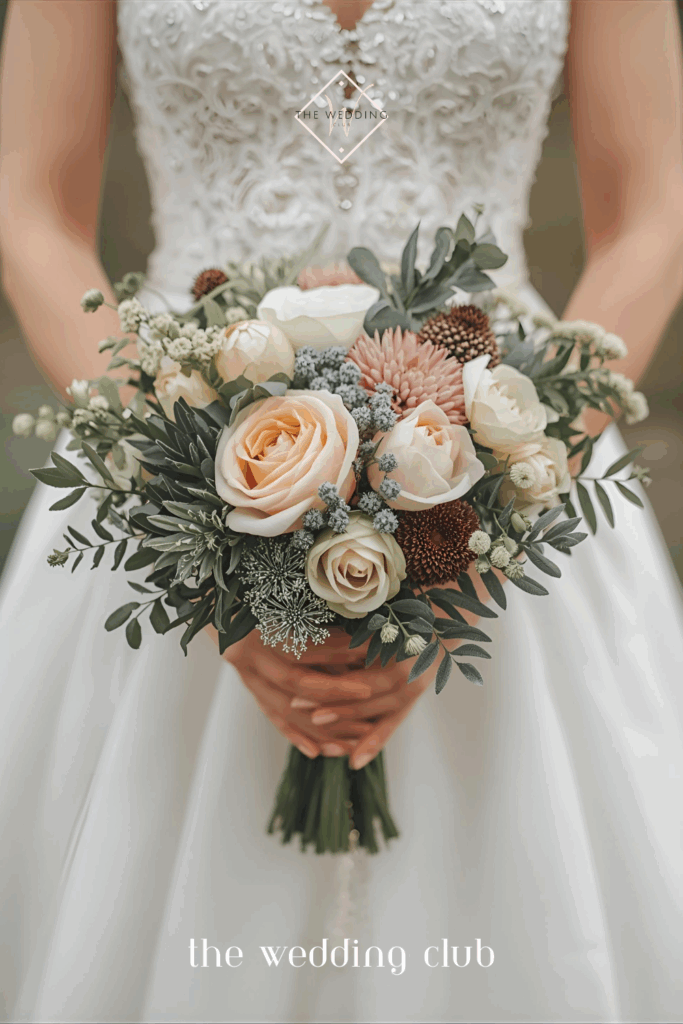
Music & Entertainment
Music keeps the energy flowing. Plan for:
-
Ceremony songs (processional, recessional)
-
Reception playlist or live entertainment
-
Special dances (first dance, parent dances)
-
Guest entertainment (photo booth, games, cultural performances)
Food & Drinks
Food is often the biggest part of the budget—and one of the most memorable. Options include buffet, plated dinner, food trucks, or cultural menus. Don’t forget:
-
Cocktail hour appetizers
-
Late-night snacks
-
Cake or alternative desserts (cupcakes, donuts, or cultural sweets)
Legal & Officiant
A wedding isn’t complete without the legal side. Confirm:
-
Your marriage license application timeline
-
Required documents (ID, witnesses, paperwork)
-
Who will officiate (religious, civil, or personal choice)
-
Whether additional ceremonies (religious or cultural) are needed
Honeymoon Planning
Once the wedding’s over, it’s time to relax and celebrate. Plan your honeymoon alongside your wedding to ensure smooth travel:
-
Book flights and accommodations early
-
Confirm passports and visas if needed
-
Pack essentials in advance
-
Budget for experiences and excursions
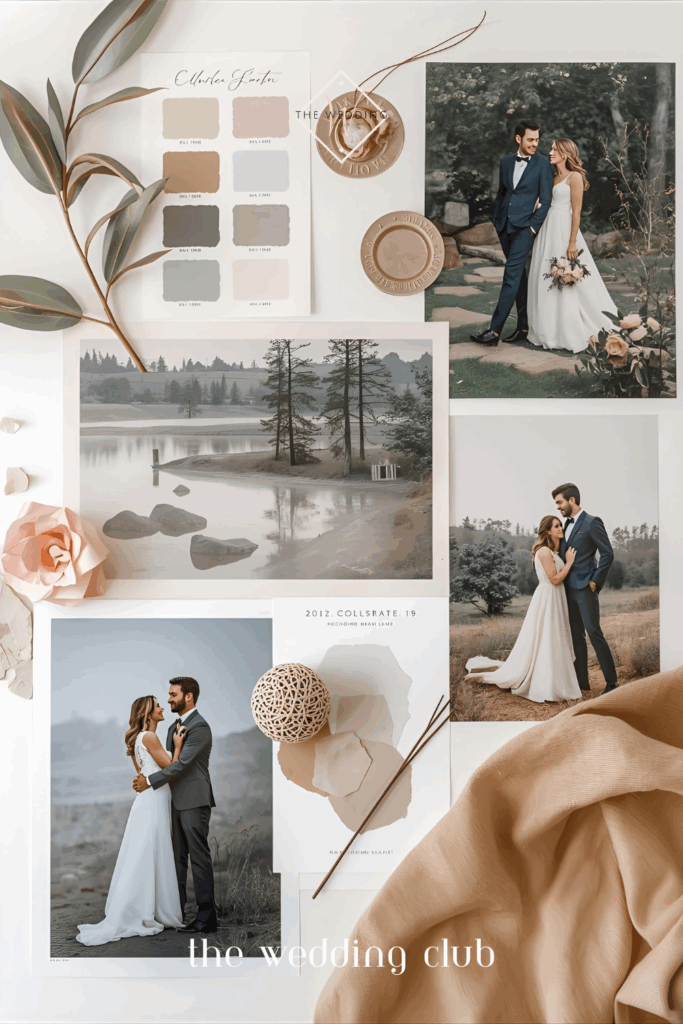
Planning a Wedding?
Save time and effort by grabbing our Wedding Planner Bundle! With over 500+ pages to choose from + edit, we made sure to not leave anything out, giving you peace of mind!
After the Wedding — Don’t Forget These
The vows have been exchanged, the cake has been cut, and the dance floor has cleared—but wedding planning doesn’t end the moment your celebration does. There are a few important post-wedding tasks every couple should keep in mind.
Send Thank-You Notes
Within a few weeks of your wedding, send personalized thank-you notes to your guests. Whether they gave you a gift, money, or simply shared the day with you, a heartfelt note goes a long way. Digital thank-yous are becoming popular, but handwritten cards add a special touch.
Handle Legal Paperwork & Name Changes
If either partner is changing their surname, update your legal documents as soon as possible. This may include:
-
Identification (passport, driver’s license, ID cards)
-
Bank accounts and credit cards
-
Insurance policies
-
Employment records
Check the requirements in your country or region—many offices require original marriage certificates.
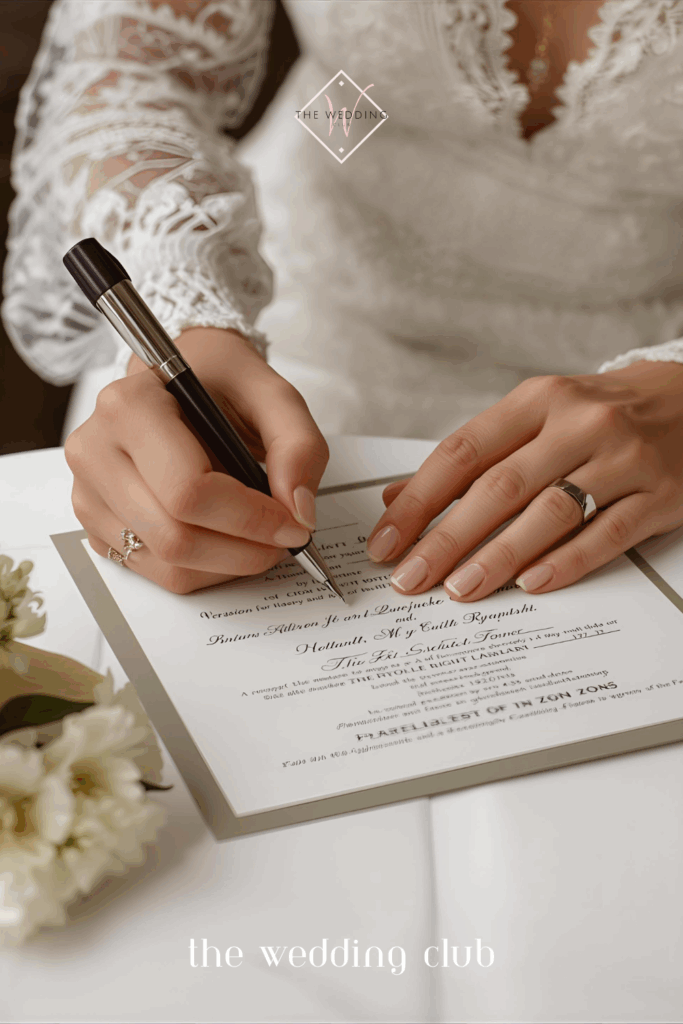
Organize and Share Your Wedding Photos
Once your photographer delivers the images, back them up and create albums for both digital and print. Share highlights on social media, send a few to family members, and consider printing a wedding photo book or canvas for your home.
Review and Rate Your Vendors
Leaving reviews online for your venue, photographer, florist, and other vendors not only helps future couples but also supports the professionals who worked hard on your big day. Many vendors rely on word-of-mouth and reviews to grow their businesses.
Preserve Your Dress and Keepsakes
If you want to keep your wedding dress, have it professionally cleaned and preserved as soon as possible. The same applies to other keepsakes like bouquets, invitations, or vow books. Proper storage ensures these items last for years to come.
Plan the Honeymoon or Mini-Moon
Some couples leave immediately after the wedding, while others prefer a short trip (mini-moon) before taking a bigger honeymoon later. Either way, use this time to relax, recharge, and reflect on the celebration together.

Reflect and Reset
Take time as newlyweds to reflect on your day. What went well? What memories stood out? Writing these thoughts down can be a beautiful tradition, and it sets the tone for starting your married life together.
💡 After the wedding, don’t forget to send thank-you notes, update legal paperwork, organize photos, and take care of keepsakes. These small but important steps help you close the wedding chapter gracefully and begin your new life together stress-free.
Frequently Asked Questions About Getting Married
How long does it take to plan a wedding?
Most couples take 12–18 months to plan a wedding, but it depends on the size and complexity of your celebration. Small or elopement-style weddings can be organized in a few weeks, while larger weddings may need more time to secure venues and vendors.
What is the first thing to do after getting engaged?
The first steps are to set a budget, create a guest list draft, and choose a date or season. These decisions will shape the rest of your wedding planning. Once those are in place, you can start looking at venues and vendors.
Do I need a wedding planner?
Not every couple hires a wedding planner, but many find it helpful. A planner can manage timelines, vendor contracts, and on-the-day coordination. If you’re planning a destination wedding, or if you have limited time, a wedding planner can save stress and streamline the process.
When should I book my wedding venue?
Ideally, 12–18 months in advance. Popular venues can book out more than a year ahead, especially during peak wedding seasons. If you’re flexible with dates or locations, you may be able to secure a venue closer to your wedding day.
How much does the average wedding cost?
Wedding costs vary greatly by country, guest count, and style. On average, couples spend between $15,000 and $30,000 USD globally. Elopements and small weddings can be much cheaper, while luxury weddings may exceed six figures. Your budget should reflect your priorities, not averages.
What documents are needed to get married?
Requirements differ by country, but you typically need:
- Valid identification (passport or ID card)
- A marriage license or certificate application
- Witnesses (often 1–2 required)
- Proof of divorce or death certificate if previously married
Always check your local government’s official website for exact requirements.
When should I send wedding invitations?
Send save-the-dates 6–12 months ahead (especially for destination weddings), and send formal invitations 3–4 months before the wedding. This gives guests enough time to RSVP, arrange travel, and plan their schedules.
What are some ways to save money on a wedding?
- Choose an off-peak date (weekday or off-season)
- Limit your guest list
- DIY certain elements (invitations, décor)
- Choose a venue that includes catering and rentals
- Focus spending on your top priorities and cut costs elsewhere
What should I do after the wedding?
After your wedding, don’t forget to:
- Send thank-you notes
- Update legal paperwork and name changes (if needed)
- Organize and back up wedding photos
- Leave vendor reviews
- Enjoy your honeymoon or mini-moon
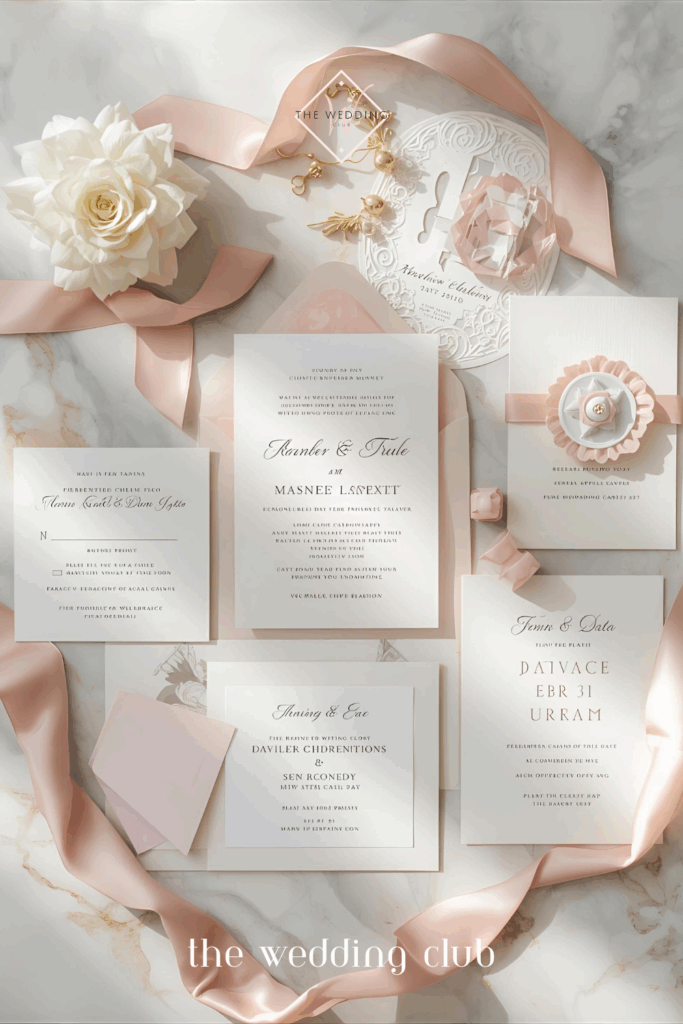

by Tanya Guilfoyle
Born in Johannesburg, South Africa, Tanya has been an active contributor and planner in the wedding industry since 2016. When not writing useful content for brides and wedding professionals, she can be found designing templates for her Etsy shop, TWCprintables.
Planning a Wedding?
Save time and effort by grabbing our Wedding Planner Bundle! With over 500+ pages to choose from + edit, we made sure to not leave anything out, giving you peace of mind!

